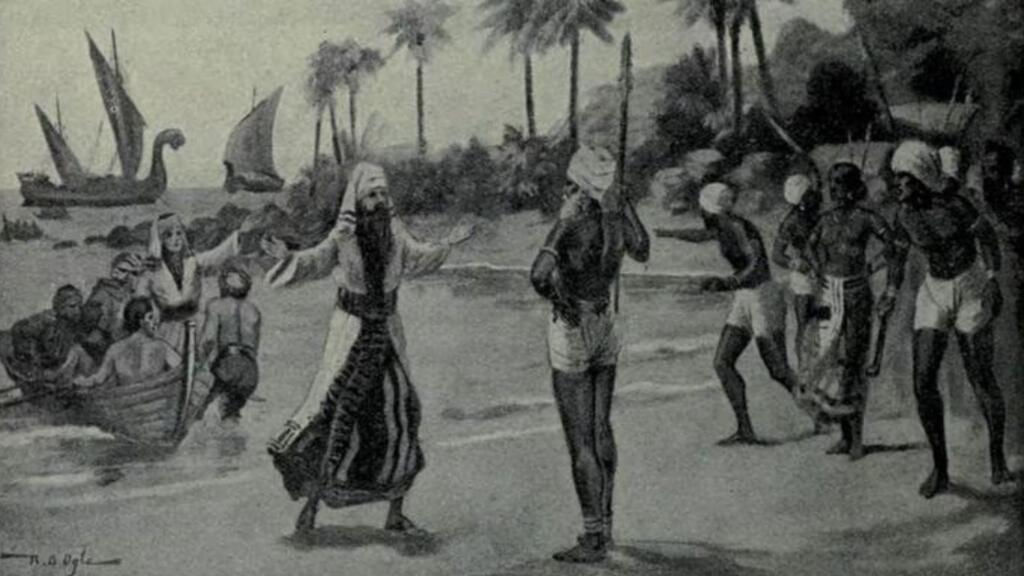Despite motivated smear campaigns by Western intelligentsia and vested interest groups, the history of Jews in India is a proof of the country’s secular, inclusive credentials as well as Hindu civilisation’s innate nature to harmonious coexistence. Their history also exhibits their cultural contribution to the subcontinent’s cultural fabric. Indian Jews, who have been around since antiquity, have thrived in Hindu civilisation’s multicultural and pluralistic setting for religions and cultures.
Historians have suggested that Jewish traders first arrived in India in 562 BCE, during the reign of the Hebrew King Solomon, indicating that the Jewish people have been there since ancient times. The main reasons for their migration were trade and to escape persecution, particularly during times like the Second Temple’s destruction in 70 CE, when many of them sought safety in Indian territory. A number of unique Jewish communities include the Baghdadi Jews, Bene Israel (“Sons of Israel”), and Cochin Jews. Each of them have their own history and customs, developed over the ages.
Indian Jews experienced great prosperity, reaching unprecedented levels of wealth and population. In the middle of the 1940s, there were between 20,000 and 50,000 Jews living in British India. Many Jews left India after the State of Israel was established in 1948. Despite the high emigration rates, Jews remained actively involved in Indian life in the second half of the 20th century. As per the estimates, there are about 4000-5000 Jews population in India today.
Contributions to Indian Society
The Jewish community, through their culture, architecture and arts, has contributed immensely in the development of India. Public utility buildings, schools, libraries, warehouses, synagogues, cotton mills run by Jew entrepreneurs, statues all portray typical Jewish architecture. They have been at the frontiers in bringing development through numerous establishments, hospitals and institutions built in and around Pune, Mumbai and coastal towns in Konkan.
The Keneseth Eliyahoo Synagogue is one of two Baghdadi Jewish synagogues in Mumbai that was established in 1884. It was constructed in the classical revival style with a double-height prayer hall and was funded by the Sassoons, a well-known Jewish family of entrepreneurs and philanthropists. Experts claim that its stained glass is among the best in all of Mumbai. The Beth El Synagogue in Panvel, Navi Mumbai, was also established around 1849.
Also Read: Crusade, Conversion, Colonialism have shaped Christianity’s spread
Since November 2008, when Pakistani gunmen attacked a Jewish center in Mumbai, all synagogues are under constant police protection.
Jews have made substantial contributions to many aspects of Indian society over the course of their lengthy presence in the country, especially in the fields of business, architecture, and the arts. Jewish businesspeople were essential to the economic growth of cities like Mumbai and Pune, setting up companies that engaged in both domestic and foreign trade in addition to meeting local demands. Famous sites like Mumbai’s David Sassoon Library and Sassoon Docks are reminders of the Baghdadi Jewish community’s philanthropic and architectural heritage. Jewish community’s fusion with the Marathi culture has also been a centre of attraction for many.
Additionally, Indian Jews’ culinary traditions, which combine regional Indian ingredients and customs with Jewish dietary laws, have enhanced the cultural landscape. The distinctive Jewish-Indian identity is reflected in dishes that combine regional flavors with traditional preparation techniques. Every Jewish community in India has made contributions to the varied Jewish cuisine that is now an essential component of India’s culinary history, from the Cochin Jews with their well-known synagogue to the Bene Ephraim and Bnei Menashe.
By maintaining their religious customs and cultural heritage, Indian Jews being the smallest minority continue to leave a lasting legacy.
Interwoven with the larger narrative of Indian history, the story of Jews in India is one of endurance and cooperation. Indian Jews have made a lasting impression through their early migration, the creation of distinctive communities, and their significant contributions to a variety of fields. In a rapidly changing world, their legacy continues to inspire dialogue and drive efforts to safeguard a history that transcends time and borders.
